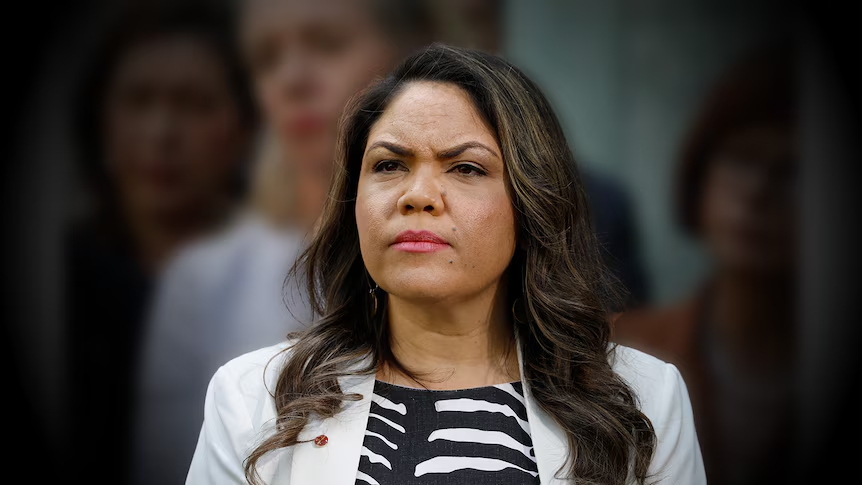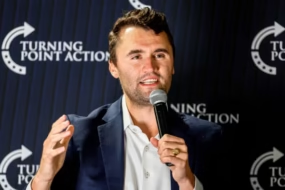Early Life and Background
Jacinta Yangapi Nampijinpa Price was born on May 12, 1981, in Darwin, Northern Territory, Australia. Raised in Alice Springs, she came from a unique family that bridged two worlds: one rooted in the Indigenous Warlpiri culture, and the other grounded in Anglo-Celtic traditions. Her mother, Bess Price, a former politician and prominent Indigenous advocate, provided Jacinta with a powerful example of leadership. Her father, David Price, was an educator of Irish descent, which brought a blend of cultural perspectives to Jacinta’s upbringing.
Growing up, Jacinta was immersed in both Indigenous and Western cultures, providing her with a broad worldview that shaped her approach to social issues in Australia. Her connection to the Warlpiri people of the Northern Territory has been integral to her identity, but it was the complexities and challenges of living as an Indigenous person in modern Australia that truly influenced her path. Throughout her youth, she was exposed to the struggles faced by many Aboriginal communities, including socioeconomic hardships, the prevalence of domestic violence, and the disparity in access to basic services. These early life experiences fueled her desire to understand and eventually challenge the political narratives surrounding Indigenous communities.
Education and Early Career
Jacinta’s early years were marked by a strong desire for achievement and a keen interest in education. She attended school in Alice Springs, where she excelled academically, though it wasn’t until later in life that she truly embraced her career potential. Her diverse talents were reflected in her varied early career, which included a stint as a singer-songwriter. She worked as a host for *Yamba’s Playtime*, a popular children’s television program on Imparja TV, where her charm and talent helped build a public profile. This early exposure to the media world gave Jacinta a sense of the power of communication and the responsibility that comes with it.
However, her time in the entertainment industry was not where she saw her future. After a few years, she decided to pursue public service, feeling a strong calling to effect change in the community. In 2015, she entered local politics by running for a seat on the Alice Springs Town Council. It wasn’t long before she was recognized as a rising figure, and in 2020, she became the Acting Mayor for a brief period, before being appointed Deputy Mayor in 2020, a position she held until 2021. These roles helped her gain a deeper understanding of governance and the challenges faced by local councils, especially in remote areas.
Political Career
Jacinta’s political journey took a significant turn when she joined the Country Liberal Party (CLP), a conservative political party in the Northern Territory, in line with the Liberal-National Coalition federally. In 2019, she ran for the federal seat of Lingiari, though she was not successful. Despite this setback, she continued to build her political profile, developing a reputation for being outspoken and direct in her views.
Her breakthrough came in 2022 when Jacinta was elected as a Senator for the Northern Territory in the federal election, succeeding Sam McMahon. The victory marked a significant shift in her political career, allowing her to influence policy at the national level. At first, she sat with the National Party, but in May 2025, she made the controversial decision to move to the Liberal Party, which she argued would better support her leadership ambitions. This move, however, came with its drawbacks, as some of her political prominence was diminished, and she was relegated to a junior position as the Shadow Minister for Defence Industry and Government Efficiency.
Despite this setback, Jacinta’s political profile continued to rise. As Shadow Minister for Indigenous Affairs, she became an influential voice within the Liberal Party. Her advocacy has focused on what she considers practical, real-world solutions for Aboriginal communities, rather than symbolic gestures. One of the defining moments of her career came in 2023 when she took a leading role in the “No” campaign against the Indigenous Voice to Parliament referendum. Jacinta argued that the proposed Voice was divisive and ineffective in addressing the real issues facing Indigenous Australians. This stance brought her national attention, with conservative supporters rallying behind her while progressive groups and some Indigenous advocates criticized her views as undermining progress.
Personal Life
Jacinta’s personal life has often been intertwined with her political career. She is married to Colin Lillie, and together they have three children, some of whom have Indian heritage through their father’s side of the family. This mix of cultural backgrounds has occasionally been highlighted in public discussions, especially during controversies regarding her views on immigration and multiculturalism. Jacinta’s personal experiences as an Indigenous woman and mother have deeply influenced her political advocacy, with her rejection of “opportunistic collectivism” being a key tenet of her worldview. She often emphasizes the importance of individual responsibility and self-determination, rather than relying on government support or collective identity.
Her mother, Bess Price, was a significant influence on her life. As a former Northern Territory Minister and a prominent figure in Indigenous politics, Bess set a powerful example for Jacinta in both leadership and political activism. Jacinta’s family dynamics have often been a part of her political narrative, with her experiences as a daughter and mother informing her approach to social issues, particularly those related to Indigenous families.
Political Style and Public Perception
Jacinta Price is known for her bold, combative style. She has earned a reputation as a “truth-teller” within conservative circles, often challenging what she perceives as the “woke” policies of the left. Her opposition to changing Australia Day, her defense of the national flag, and her criticisms of progressive policies have made her a polarizing figure. To her supporters, Jacinta represents a refreshing alternative to traditional Indigenous advocacy, a voice that is not afraid to stand up for what she believes in, regardless of the backlash. They see her as a potential future leader of the Liberal Party, or even Australia’s first Indigenous female Prime Minister.
However, her critics accuse her of undermining Indigenous progress by aligning with right-wing narratives. They argue that her opposition to initiatives like the Voice to Parliament and her stance on issues such as welfare reform are damaging to Indigenous communities. Nevertheless, Jacinta’s ability to leverage her Indigenous identity while challenging mainstream progressive ideas has made her a unique and divisive figure in Australian politics.
Why Jacinta Price Is Trending Now (September 2025)
As of September 2025, Jacinta Price has once again found herself at the center of national attention, primarily due to controversial remarks she made during an interview on the ABC program *Background Briefing*. In this interview, Price claimed that the Labor government was prioritizing Indian migrants because they were seen as a valuable voting bloc for the party. Her comments suggested that Labor’s migration policies were designed to attract Indian-Australians in an attempt to secure electoral advantage. This statement has sparked a firestorm of controversy and backlash.
Details of the Controversy
During the interview, Price pointed to polling data that indicated a high percentage of Indian-Australians voted for the Labor Party in 2022. She argued that many Indian-Australians, who are often skilled and conservative in their values, should be aligning with the Coalition, but were being alienated by Labor’s approach. This claim was met with immediate condemnation from Indian-Australian community leaders and groups, who described her remarks as racist and divisive.
Her comments have ignited a broader conversation about Australia’s immigration policies and the political strategies behind them, with some seeing it as a reflection of global populist trends. However, the timing of her remarks, coming shortly after anti-immigration rallies in Australia, only added fuel to the fire. Jacinta’s refusal to apologize for her comments and her continued insistence that she was misunderstood has further polarized public opinion, both within the Liberal Party and across the broader Australian political landscape.
Party Tensions and Media Frenzy
The fallout from this controversy is ongoing, with Jacinta Price’s name trending across social media platforms and news outlets. Her political future remains uncertain, as the tensions within her own party and the broader electorate continue to evolve. Despite the backlash, Jacinta Price’s unapologetic stance has only solidified her standing among her conservative supporters, even as it risks further alienating multicultural communities and moderates within her party.








